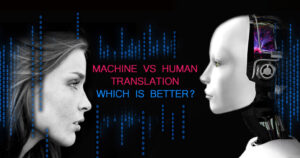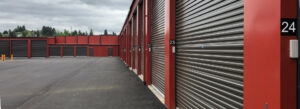The Role of an Arabic Interpreter in Dubai’s Multilingual Landscape

Introduction
In the heart of the Middle East, Dubai stands as a global city, attracting businesses and individuals from diverse linguistic backgrounds. The necessity for clear communication in this multicultural oasis cannot be overstated. This article delves into the multifaceted role of Arabic interpreter in Dubai and explores their significance in different spheres.
Table of Contents
- Introduction
- Growing Demand for Arabic Interpreters
- Qualities of an Effective Arabic Interpreter
- The Role of an Arabic Interpreter in Business Meetings
- Cultural Nuances in Interpretation
- Legal Settings and Arabic Interpreters
- Healthcare and Interpreting Services
- Educational Settings and Language Interpretation
- Technology and the Evolution of Interpretation
- Challenges Faced by Arabic Interpreters
- The Impact of Global Events on Interpretation
- Industry Standards and Certifications
- FAQs
- Q: Why is hiring an Arabic Interpreter important in Dubai?
- Q: What industries benefit from an Arabic Interpreter in Dubai?
- Q: How can I book an Arabic Interpreter for my event in Dubai?
- Q: Is it necessary to have an interpreter for business meetings in Dubai?
- Q: What makes a good Arabic Interpreter in Dubai?
- Conclusion
Growing Demand for Arabic Interpreters
Rise in International Business
Dubai’s economic landscape is marked by a surge in international trade and commerce. As businesses transcend borders, the need for proficient Arabic interpreters grows. These language experts facilitate smooth communication, ensuring that negotiations and collaborations unfold seamlessly.
Cultural Exchange and Diversity
Dubai’s cosmopolitan environment thrives on cultural exchange. Arabic interpreters play a vital role in fostering connections between people of different cultures. Their ability to navigate linguistic nuances ensures that cultural diversity is celebrated and respected.
Qualities of an Effective Arabic Interpreter
Language Proficiency
An effective Arabic interpreter possesses a deep understanding of the language, including its intricacies and dialects. Mastery over both formal and colloquial Arabic enables interpreters to convey messages accurately and with cultural sensitivity.
Cultural Sensitivity
Beyond linguistic prowess, cultural sensitivity is paramount. Interpreters must comprehend the cultural context of conversations to accurately convey not just words but the intended meaning behind them. This cultural acumen builds trust and rapport.
The Role of an Arabic Interpreter in Business Meetings
Bridging Communication Gaps
In the corporate world, effective communication is the bedrock of success. Arabic interpreters act as linguistic bridges, ensuring that every participant in a business meeting comprehends and contributes meaningfully, regardless of their language proficiency.

Ensuring Clarity in Negotiations
In negotiation settings, clarity is key. Arabic interpreters facilitate clear communication between parties, reducing the risk of misunderstandings that could hinder business deals. Their role in negotiations extends beyond words to cultural nuances, ensuring a harmonious exchange.
Cultural Nuances in Interpretation
Navigating Social Customs
Social customs vary across cultures, and interpreters must navigate these nuances adeptly. From formal greetings to understanding non-verbal cues, interpreters service as cultural mediators, fostering a comfortable atmosphere for communication.
Respecting Traditions
In Dubai, where traditions are cherished, interpreters play a crucial role in maintaining respect for cultural norms. Their ability to convey messages while upholding traditions ensures that communication remains harmonious and inclusive.
Legal Settings and Arabic Interpreters
Ensuring Fair Trials
Within legal settings, the role of Arabic interpreters is particularly critical. They ensure fair trials by accurately translating legal proceedings, enabling all parties to comprehend and participate fully in the legal process.
Facilitating Legal Documentation
Beyond courtroom settings, interpreters assist in drafting legal translation documents, contracts, and agreements. Their linguistic expertise ensures that legal documents are precise and culturally appropriate, avoiding potential legal pitfalls.
Healthcare and Interpreting Services
Overcoming Language Barriers in Medical Settings
In healthcare, accurate communication is a matter of life and death. Arabic interpreters bridge language gaps between healthcare providers and patients, ensuring that medical information is conveyed accurately and that patients can make informed decisions about their care.
Enhancing Patient Care
Arabic interpreters contribute significantly to patient-centered care. They facilitate communication between healthcare professionals and patients, fostering a trusting relationship that enhances the overall quality of healthcare service.
Educational Settings and Language Interpretation
Fostering Inclusive Learning Environments
In educational institutions, Arabic interpreters contribute to creating inclusive environments. They enable students from diverse linguistic backgrounds to fully participate in classroom activities, promoting equal educational opportunities.
Supporting Student Success
Interpreters play a vital role in supporting students’ academic success. By breaking down language barriers, they ensure that students can access educational resources, communicate effectively with educators, and thrive in their learning journey.
Technology and the Evolution of Interpretation
AI-Assisted Interpretation
The advancement of technology has brought forth AI-assisted interpretation tools. While these tools can aid in basic translation tasks, they lack the nuanced understanding and cultural sensitivity that human-machine translation brings to the table.
Virtual Interpreting Platforms
Virtual interpreting platforms have also emerged, allowing for remote interpretation services. However, the personal touch and cultural awareness provided by in-person interpreters remain irreplaceable, especially in a multicultural city like Dubai.
Challenges Faced by Arabic Interpreters
Managing Stress and Pressure
Interpreters often work in high-pressure environments, requiring them to think on their feet and handle complex linguistic challenges. Managing stress and pressure is a skill that sets apart exceptional interpreters.
Overcoming Misinterpretations
Language is nuanced, and misinterpretations can occur. Skilled Arabic interpreters possess the ability to quickly rectify misunderstandings, ensuring that the intended message is conveyed accurately.
The Impact of Global Events on Interpretation
Coping with Emergency Situations
In times of crises, such as natural disasters or pandemics, the demand for interpreters spikes. Arabic interpreters play a crucial role in emergency response, ensuring that information is disseminated accurately to diverse communities.
Providing Aid During Crises
Whether it’s providing medical assistance or facilitating communication for relief efforts, interpreters contribute significantly to crisis management. Their role becomes a lifeline for affected individuals who require timely and accurate information.
Industry Standards and Certifications
Importance of Certification
To maintain high standards in interpretation, certifications are crucial. Certified Arabic interpreters demonstrate a commitment to excellence, ensuring that they meet industry benchmarks and adhere to ethical standards.
Continuous Professional Development
In a rapidly evolving landscape, continuous learning is key. Arabic interpreters engage in ongoing professional development to stay abreast of linguistic and cultural shifts, ensuring they provide the highest quality of service.
FAQs
Q: Why is hiring an Arabic Interpreter important in Dubai?
A: Dubai is a melting pot of cultures, and effective communication is crucial for successful interactions. An Arabic Interpreter ensures that language differences don’t hinder the exchange of ideas and information.
Q: What industries benefit from an Arabic Interpreter in Dubai?
A: Various industries, including business, legal, healthcare, and hospitality, can benefit from the services of an Arabic Interpreter. It ensures smooth communication in diverse settings.
Q: How can I book an Arabic Interpreter for my event in Dubai?
A: Booking an Arabic Interpreter is easy! Simply contact language service providers or freelancers offering interpretation services. Provide details about your event, language needs, and schedule, and they’ll take care of the rest.
Q: Is it necessary to have an interpreter for business meetings in Dubai?
A: While many in Dubai are multilingual, having an interpreter can still be valuable, especially in critical business discussions. It ensures clarity and avoids misunderstandings, contributing to successful outcomes.
Q: What makes a good Arabic Interpreter in Dubai?
A: A good Arabic Interpreter should be fluent in both Arabic and the target language, possess cultural awareness, and have excellent communication and interpersonal skills. Experience in specific industries is also beneficial.
Conclusion
In the intricate tapestry of Dubai’s multilingual landscape, Arabic interpreters weave the threads of understanding, ensuring that communication transcends linguistic barriers. Their role is not just linguistic; it is a cultural bridge that fosters harmony and collaboration in this vibrant city.









